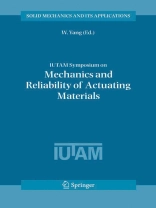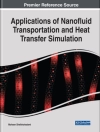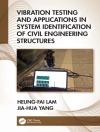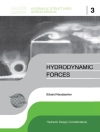Actuating materials hold a promise for fast-spreading applications in smart structures and active control systems, and have attracted extensive attention from scientists of both mechanics and materials sciences communities. High performance and stability of actuating materials and structures play a decisive role in their successive applications as sensors and actuators in structural control and robotics. The advances of actuating materials, however, recently encountered a severe reliability issue. For a better understanding toward this issue, scientific efforts are of paramount significance to gain a deep insight into the intricate deformation and failure behaviors of actuating materials. To examine the state of the art in this subject, the general assembly of IUTAM approved in August, 2002 at Cambridge University, UK, a proposal to hold an IUTAM symposium to summarize the relevant research findings. The main themes of the symposium are: (i) the constitutive relations of actuating materials that couple mechanical, electrical, thermal and magnetic properties, as well as incorporate phase transformation and domain switch; (ii) the physical mechanisms of deformation, damage, and fatigue crack growth of actuating materials; (iii) the development of failure-resilient approaches that base on the macro-, meso-, and micro-mechanics analyses; (iv) the investigation of microstructural evolution, stability of phase transformation, and size effects of ferroelectric ceramics, shape memory alloys, actuating polymers, and bio-actuating materials. The above problems represent an exciting challenge and form a research thrust of both materials science and solid mechanics. The IUTAM Symposium (GA.
Inhoudsopgave
Ferroelectrics.- A Switching Rule for Local Domain Wall Motions and for Macroscopic Material Response of Ferroelectrics.- The Effects of Sieving Method and Poling Approach on the Internal Bias Field in Donor Doped PZT Ceramics.- Interaction between Defects and Domain Walls in Piezoelectric Materials.- In-Situ Observation of Electrically Induced Fatigue Crack Growth for Ferroelectric Single Crystals.- Crack Initiation and Crack Propagation under Cyclic Electric Loading in PZT.- Multiaxial Behavior of Ferroelectric Ceramic PZT53.- Stability Analysis of 180° Domains in Ferroelectric Thin Films.- Stress Analysis in two Dimensional Electrostrictive Material under General Loading.- Piezoelectrics.- Effect of Electric Fields on Fracture of Functionally Graded Piezoelectric Materials.- The Charge-Free Zone Model for Conductive Cracks in Dielectric and Piezoelectric Ceramics.- Electrical Potential Drop Across a Crack in Piezoelectrics.- Elastic Sv-Wave Scattering by an Interface Crack Between a Piezoelectric Layer and an Elastic Substrate.- A Micro-Macro Approach to Design Active Piezoelectric Fiber Composites.- Fem-Techniques for Thermo-Electro-Mechanical Crack Analyses in Smart Structures.- Trefftz Plane Element of Piezoelectric Plate with p-Extension Capabilities.- On Piezoelectric Actuator Layers in Plates and Shells at Large Deflections.- Electric Charge Loading of a Piezoelectric Solid Cylinder.- Oblique Propagation of Time Harmonic Waves in Periodic Piezoelectric Composite Layered Structures.- Scattering Behaviour of Elastic Waves in 1–3 Piezoelectric Ceramics/Polymer Composites.- Stress Analysis for an Anisotropic Solid with Variable Off-Axis of Anisotropy.- Shape Memory Alloys.- Deformation Instability and Pattern Formation in Superelastic Shape Memory Alloy Microtubes.- Theoretical Consideration on the Fracture of Shape Memory Alloys.- 3D Finite Element Simulation for Shape Memory Alloys.- Magnetostrictive Materials and Actuating Structures.- Constitutive Models for Magnetostrictive Materials.- Vibration Analysis of a Nonlinear Magnetostrictive Acutator.- Test Study of the Feed-Support System for a Large Radio Telescope.- Biological Actuating Materials.- Biofilm Growth: Perspectives on Two-Phase Mixture Flow and Fingerings Formation.- Damage and Fatigue of Actuating Heart Muscles.












